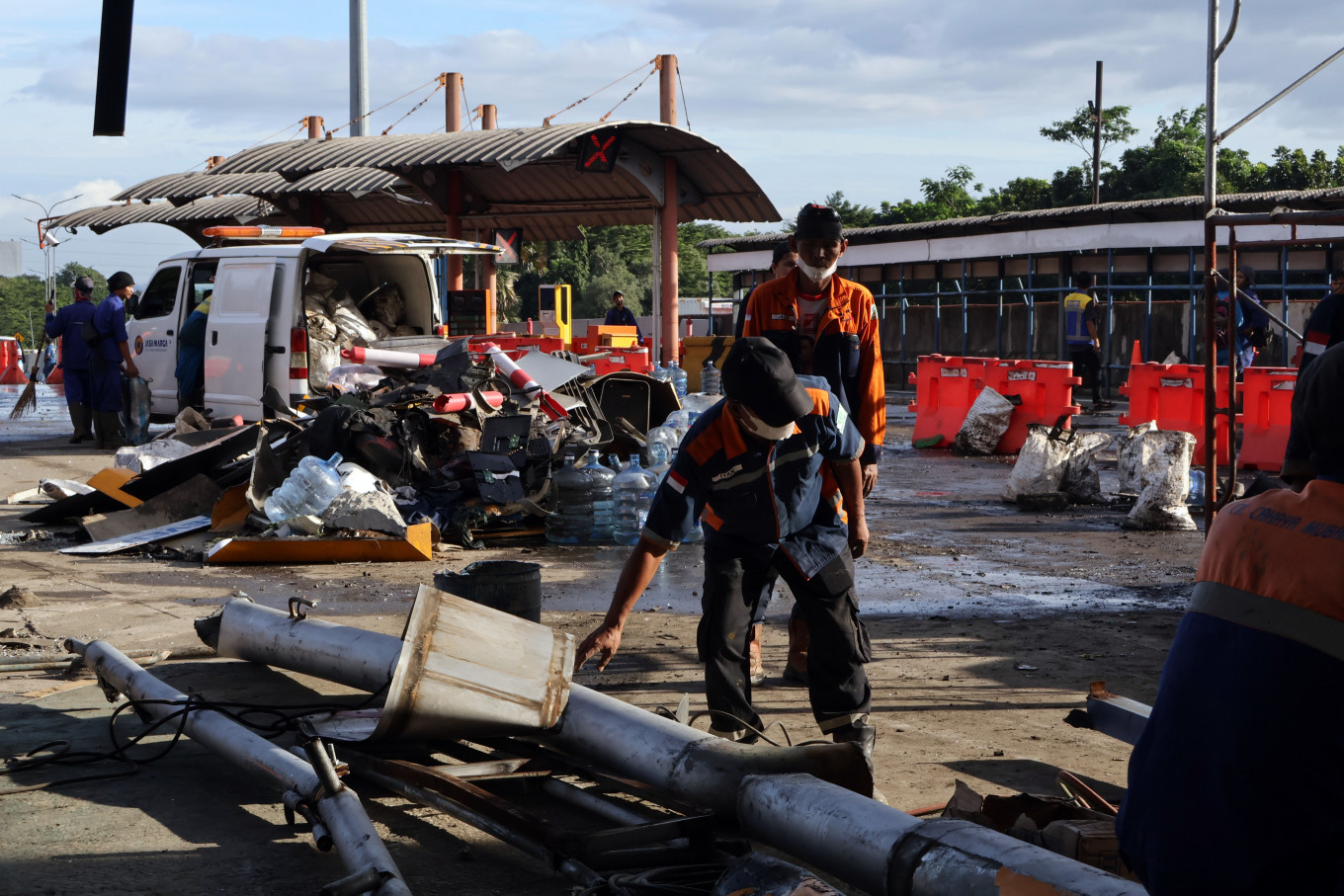Popular Reads
Top Results
Can't find what you're looking for?
View all search resultsPopular Reads
Top Results
Can't find what you're looking for?
View all search resultsExperts demand enforcement of truck safety
Following the fatal accident on Tuesday at the Ciawi 2 Tollgate, experts stressed the urgency of implementing the zero ODOL policy to reduce accident risks, improve fuel efficiency and safeguard road safety.
Change text size
Gift Premium Articles
to Anyone
O
verloaded and oversized trucks continue to operate on Indonesia’s highways and toll roads, increasing the risk of accidents and causing economic and environmental damage. Meanwhile, the implementation of the long-discussed zero Over Dimension Overload (ODOL) policy has yet to materialize.
The tragedy that occurred at the entrance to the Jagorawi toll road in Ciawi, Bogor regency, West Java, on Tuesday, caused by a truck carrying bottled water that allegedly experienced brake failure, brought the zero ODOL policy discussion back to the forefront.
Eight people died in the accident involving six vehicles.
According to the Road Safety Association (RSA), the zero ODOL policy is not just an option but an urgent necessity to be implemented.
"ODOL trucks on toll roads either travel at below speed or normal speed. If they move at normal speed, the effectiveness of their brakes will be compromised, increasing the risk [of accidents]. To mitigate this, they opt for below-speed travel," a member of RSA honorary board, Rio Octaviano, said during an online discussion on Wednesday evening, as quoted by kompas.com.
The large number of trucks traveling below the minimum speed limit widens the gap between maximum and minimum speeds on toll roads.
"This means that trucks moving at below speed will disrupt traffic conditions," Rio said.
According to Rio, ODOL violations are offenses that must be taken seriously. Beyond endangering road safety, these violations also impact fuel efficiency. Overloaded trucks not only face a higher risk of mechanical failure but also consume significantly more fuel than vehicles operating within their designated capacity.
Committee for the Phasing Out of Leaded Fuel (KPBB) executive director Ahmad Safrudin said that in 2021, trucks consumed nearly 30 percent of the nation's fuel supply, making them the second-largest fuel consumer after motorcycles.
This excessive fuel use burdens the economy and increases reliance on fossil energy. Enforcing the zero ODOL policy could help control fuel consumption more efficiently, ultimately reducing dependence on environmentally harmful energy sources.
The Zero ODOL policy has been in preparation since 2019, but it has yet to reach fruition.
National Transportation Safety Committee (KNKT) chairman Soerjanto Tjahjono said in November that solving the ODOL problem was not just the responsibility of the Transportation Ministry but required involvement from other ministries as well.
Without collaboration among relevant ministries, the ODOL issue will never be resolved, he said, as quoted by detik.com.
The Industry Ministry and business associations rejected the planned ODOL limitation, initially to start on Jan. 1, 2023, saying it would reduce competitiveness as companies would need to buy more trucks.










